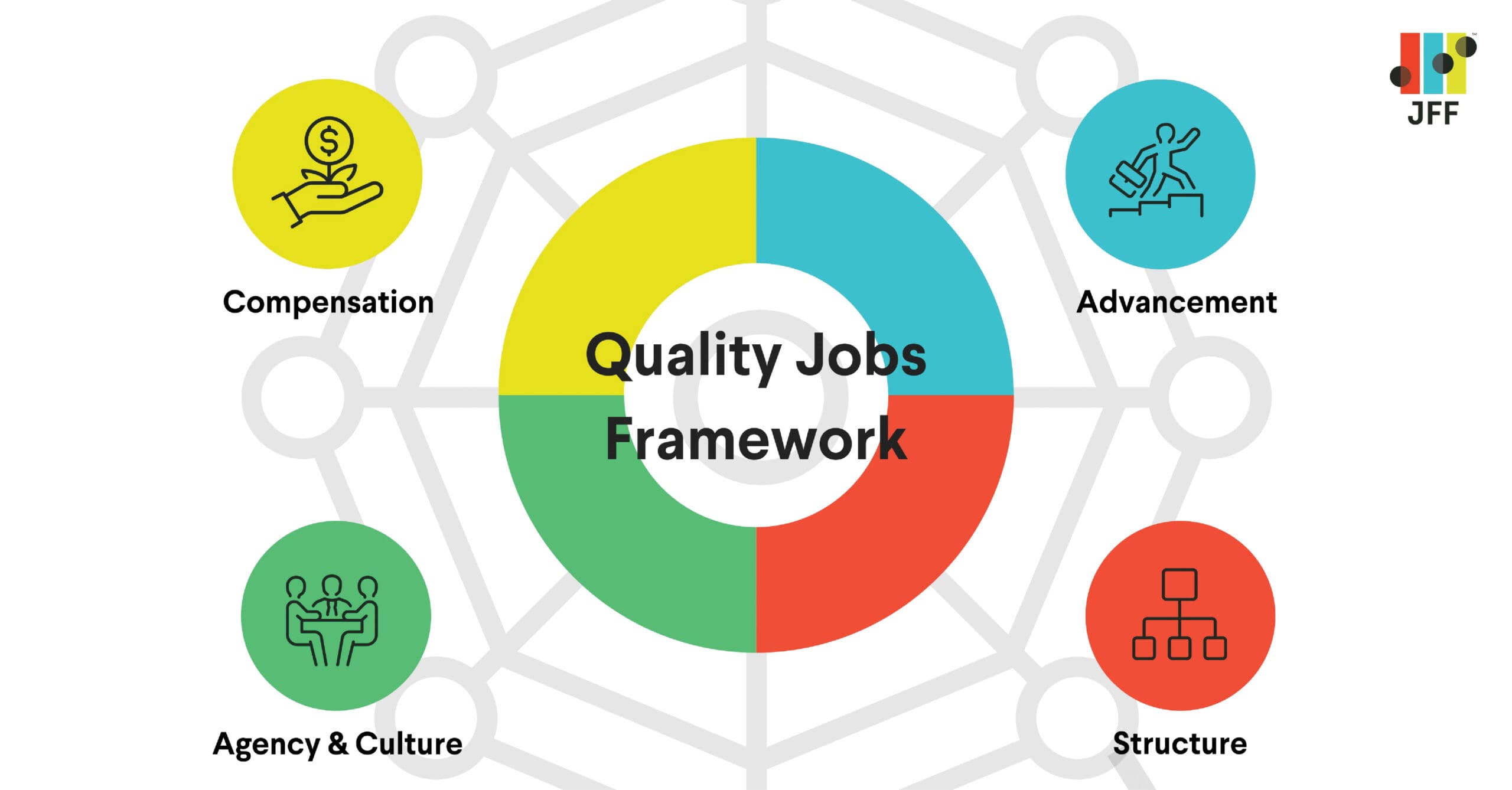4. Enhancing work-life balance and well-being.
One fact was made plain during the Great Resignation, when millions of people walked away from their jobs (bringing the nation’s “quit rate” to a 20-year high): People are increasingly taking note of their working conditions and speaking up, calling on employers to play a new and expanded role in securing their personal well-being—and they’re voting with their feet.
According to research conducted by Pew in 2022, roughly half of U.S. workers who quit a job in 2021 cited child care issues as a reason they had to stop working, and a similar number cited lack of flexibility.
More than that, in JFF’s Quality Jobs Survey, 70% of respondents identified a combination of various non-compensation-related aspects of employment as playing important roles in determining the quality of a job.
Across the country, state and local policy measures that promote improvements in paid family and medical leave, the affordability of child care, and access to mental health and well-being supports could play key roles in improving job quality by improving non-financial benefits.
Paid family and medical leave policies have become a focal point in many state and city-level efforts to enhance employee well-being. These policies generally mandate that employers provide a designated period of paid leave to employees for personal health needs, family care, or other qualifying reasons. These initiatives prioritize the health and work-life balance of employees, ensuring that they can address personal and family matters without facing financial hardships.
Crafting policies that enable affordable child care solutions has long been a goal for many states and communities. These initiatives aim to alleviate the financial burden on families while ensuring that parents can participate fully in the workforce. Specific policy priorities vary, but many focus on providing funding subsidies, increasing the supply of child care “seats,” and establishing public-private partnerships.
Proposals for promoting employee mental health and well-being initiatives are gaining ground in policy discussions, and such initiatives are becoming integral to state and regional workforce strategies. Of course, achieving this goal involves reshaping workplace cultures, and there isn’t necessarily a straightforward way to craft policies that do that. Nonetheless, cities and states could help bolster and expedite employer initiatives supporting worker well-being by establishing benefits funds, incentive programs, recognition initiatives, and more.











